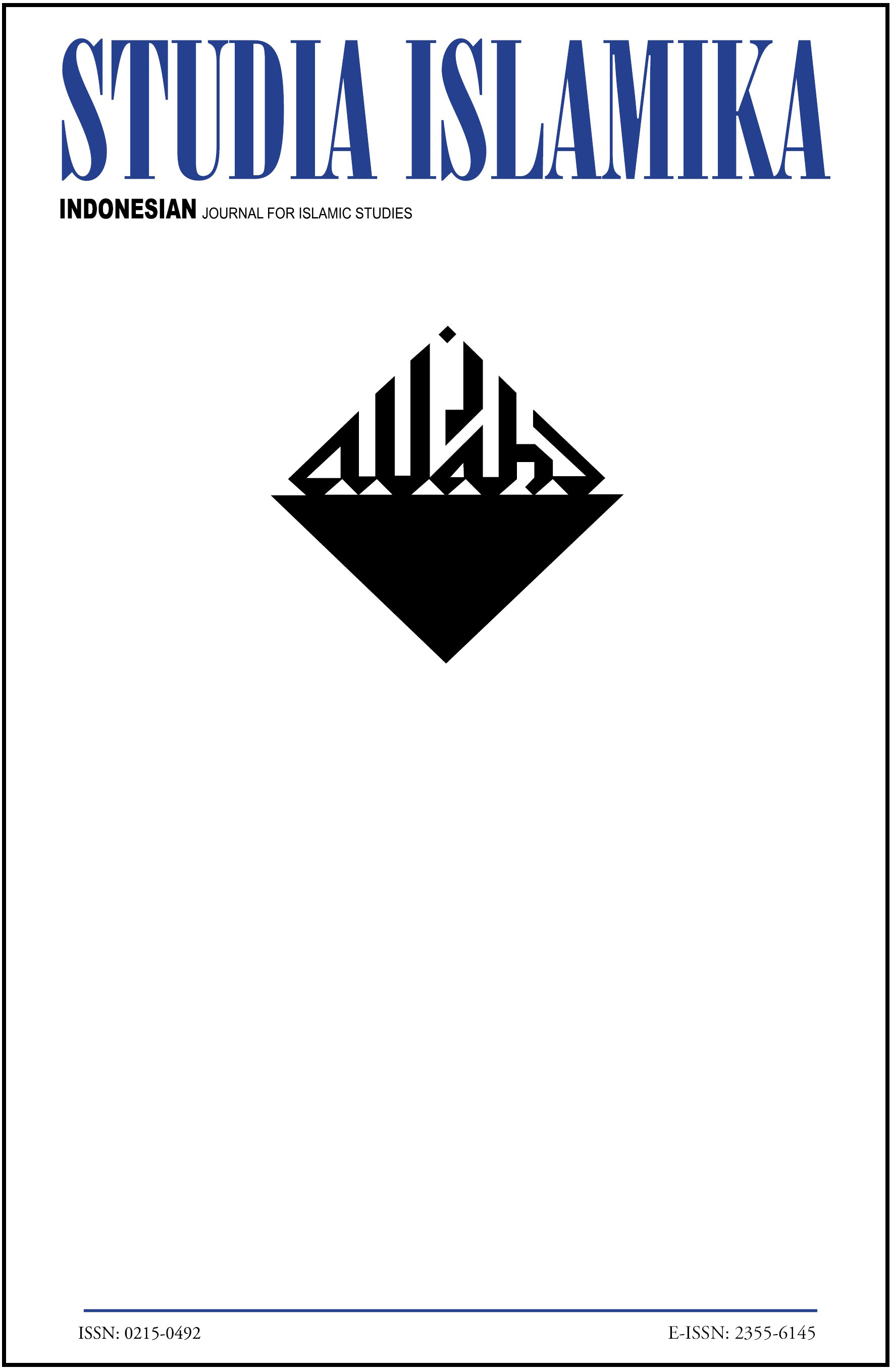Abstract
This article presents data on the religious attitudes of Muslim minority communities. Similar themes have been studied considerably, but most of them are researched in the Muslim majority areas. Therefore, the author tries to delve into the same topic, but it investigates a different locus, namely how the religious views and attitudes of Muslim minority youth in Manado. The findings reveal that the attitudes and behavior of Muslim youth in Manado towards diversity tend to be conservative with scriptural and puritanical features. However, their basic attitude is highly open towards moderate values and principles, with a decent respect for individual freedom and human rights, even though norms and culture constrain them, this shows a paradox. On the one hand, they show a tolerant attitude, but on other certain aspects or problems, their attitude tends to be intolerant. In its context, the attitudes and religiosity of these Muslim youths have sparked social change in the City of Manado.References
Ahmad, Maghfur. 2017. “Nahdlatul Ulama dan Penegakan Hak Asasi Manusia di Indonesia.” Religia 13(2).
Ahyar, Muzayyin. 2016. “Membaca Gerakan Islam dan Deradikalisasi Gerakan Islam.” Walisongo: Jurnal Penelitian Sosial Keagamaan 23(1): 1.
Alhamuddin, and Fahmi Fatwa Rosyadi Satria Hamdani. 2018. “Hidden Curriculum: Polarisasi Pesantren Dalam Upaya Membentuk Kesalehan Individu Dan Sosial.” Al-Murabbi: Jurnal Studi Kependidikan dan Keislaman 5(1): 50–65.
Almakin. 2018. Keragaman dan Perbedaan, Budaya dan Agama dalam Lintas Sejarah Manusia. Yogyakarta: SUKA-Press.
Arrasjad, Chainur. 2000. Dasar-Dasar Ilmu Hukum. Jakarta: Sinar Grafika.
Bamualim, Chaider S. 2002. Laporan Penelitian Gerakan Islam Radikal dan Perubahan Sosial di DKI Jakarta. Jakarta: PBB IAIN Syarif Hidayatullah Jakarta.
Burhanudin, Ahmad. 2019. “Dampak Kegiatan Keagamaan Rohis Melalui Kajian Kitab Kuning Bagi Akhlak Peserta Didik.” Hikmatuna 5(1): 43–56.
Cahyono, Anang Sugeng. 2016. “Pengaruh Media Sosial Terhadap Perubahan Sosial Masyarakat Di Indonesia.” Publiciana 9(1): 140-157–157.
Cahyono, Heri, and Arief Rifkiawan Hamzah. 2019. “Upaya Lembaga Pendidikan Islam Dalam Menangkal Radikalisme.” At-Tajdid: Jurnal Pendidikan dan Pemikiran Islam 2(01).
Damis, Mahyudin, and Heddy Shri Ahimsa-Putra. 1999. Text “Taptu-Hijrah Di Kalangan Kaum Muda Islam Manado, Sulawesi Utara: Sebuah Interpretasi.” Thesis. Universitas Gadjah Mada.
Ghifari, Imam Fauzi. 2017. “Radikalisme Di Internet.” Religious: Jurnal Studi Agama-Agama dan Lintas Budaya 1(2): 123–34.
Hasan, Noorhaidi. 2010. Youth Identities and Social Transformations in Modern Indonesia Violent Activism, Islamist Ideology, and the Conquest of Public Space among Youth in Indonesia. Leiden, Boston: Brill.
———. 2012. Islam Politik di Dunia Kontemporer: Konsep, Genealogi, dan Teori. Yogyakarta: Suka-Press.
Huda, Muhammad Nurul. 2017. Intoleransi Kaum Muda Di Tengah Kebangkitan Kelas Menengah Muslim Di Perkotaan. Jakarta: Wahid Foundation & Australia Indonesia Partnership for Justice 2 (AIPJ2).
Hudaeri, Mohamad. 2016. “Menentang Sekularisme: Upaya Membentuk Kesalehan Subjek Muslim di Banten.” Theologia 27(2): 305.
Laisa, Emna. 2014. “Islam Dan Radikalisme.” Islamuna 1(1).
Mantu, Rahman, and Arhanudin Salim, eds. 2019. Aktivisme Agama Dan Pembangunan Yang Berpihak. Yogyakarta: Sulur.
Masduqi, Irwan. 2013. “Deradikalisasi Pendidikan Islam Berbasis Khazanah Pesantren.” Jurnal Pendidikan Islam 2(1): 1–20.
Mulyono. 2016. “Pancasila Sebagai Orthodoksi Dan Orthopraksis Dalam Kehidupan Berbangsa Dan Bernegara.” Humanika 23(2): 40–48.
Nilan, Pam. 2004. “The Risky Future of Youth Politics in Indonesia.” Rima: Review of Indonesian and Malaysian Affairs 38(1): 173.
Qodir, Zuly. 2018. “Kaum Muda, Intoleransi, dan Radikalisme Agama.” Jurnal Studi Pemuda 5(1): 429–45.
Rakhmani, Inaya. 2017. Mainstreaming Islam in Indonesia: Television, Identity, and the Middle Class. Palgrave Macmillan: Springer.
Rijal, Syamsu. 2017. “Radikalisme Kaum Muda Islam Terdidik di Makassar.” Al-Qalam 23(2).
Rokhmad, Abu. 2012. “Radikalisme Islam dan Upaya Deradikalisasi Paham Radikal.” Walisongo: Jurnal Penelitian Sosial Keagamaan 20(1): 79–114.
Rosdalina, Rosdalina. 2016. Perkawinan Masyarakat Bugis. Yogyakarta: Istana Publishing.
Roy, Olivier. 1996. The Failure of Political Islam. Cambridge, Mass.: Harvard University Press.
Salim, Delmus Puneri. 2017. “Kerukunan Umat Beragama vs Kebebasan Beragama di Indonesia.” Potret Pemikiran 21(2).
Seran, Alexander. 2016. “Pancasila and the Struggle for a Moral Grammar.” Prajñā Vihāra 17(1): 33–33.
Sumampouw, Nono S. A. 2018. Menjadi Manado: Torang Samua Basudara, Sabla Aer, Dan Pembentukan Identitas Sosial. Yogyakarta: UGM PRESS.
Syukri, Muhammad. 2017. Ilmu Sosial Budaya Dasar. Jakarta: PT. RajaGrafindo Persada.
Usman, Abur Hamdi, Syarul Azman Shaharuddin, and Salman Zainal Abidin. 2017. “Humanism in Islamic Education: Indonesian References.” International Journal of Asia Pacific Studies 13(1): 95–113.
Yusof, Norhafezah, Amrita Kaur, Mohd Sani, and Rosna Hashim. 2019. “A Qualitative Expert Interview Approach towards Understanding Religious Extremism among Malaysian Youth.” The Qualitative Report 24(7): 1577–92.
Authors who publish with this journal agree to the following terms:
- Authors retain copyright and grant the journal right of first publication with the work simultaneously licensed under a Creative Commons Attribution License that allows others to share the work with an acknowledgement of the work's authorship and initial publication in this journal.
- Authors are able to enter into separate, additional contractual arrangements for the non-exclusive distribution of the journal's published version of the work (e.g., post it to an institutional repository or publish it in a book), with an acknowledgement of its initial publication in this journal.
- Authors are permitted and encouraged to post their work online (e.g., in institutional repositories or on their website) prior to and during the submission process, as it can lead to productive exchanges, as well as earlier and greater citation of published work.

